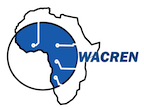
Open Science made in Africa
Libraries in West and Central Africa are offered hosting to make scientific results available and accessible.
Libraries and national research and education networks (NRENs) in West and Central Africa are increasingly stepping up their collaboration in order to widen access to results from research across the continent. In a recent agreement, West and Central African Research and Education Networks (WACREN) and the Confederation of Open Access Repositories (COAR) have committed to strengthen local, national and regional capacity for knowledge sharing.
“African countries need to determine their own paths towards sustainable Open Access and Open Science,” says Boubakar Barry, CEO of WACREN. “We appreciate the expertise and input from COAR as we define our “made in Africa” solutions.”
NREN-driven service model
A significant effort is the development of a shared hosting service for repositories in West and Central Africa. The service is inspired by the approach of the National Institute of Informatics (NII) in Japan. NII develops its e-research infrastructure for facilitating Open Science by using a repository system and a research data management (RDM) layer. The institutional repository is a system for collecting and disseminating the research output of institutions. More than 500 institutions in Japan use the current system through a cloud service (JAIRO Cloud).
“WACREN has a similar NREN-driven service model for African universities, so cooperation will lead to the development of new functionality and sharing of experiences from pilot operation,” says Boubakar Barry.
NII and WACREN are working together to implement this repository over the coming year. Other priorities are capacity building, policy templates and adoption, repository harvesting and discovery, and amplifying success stories.
Template for data exchange
WACREN’s engagement in Open Science is rooted in an ongoing project, LIBSENSE, aimed at continuous development of collaborations between libraries and NRENs in Africa. In a series of workshops, a Terms of Reference for joint activities across the two communities has been developed. The template defines four key areas of collaboration: social change, infrastructure, capacity building, and value-added services.
Further, the LIBSENSE initiative has drafted templates for data exchange model agreements that cover the data acquisition policy for national/regional repository/aggregator and data usage policy. To ensure interoperability across African repositories, metadata guidelines have been drafted.
“Another aim is to have LIBSENSE evolve into an active African community of practice for librarians and NRENs related to Open Science. Through the initiative, this pan-African community can share experiences and information, laying the foundation for their leadership in the implementation of Open Science in their community,” says Omo Oaiya, CSO of WACREN and LIBSENSE Coordinator.
For more information please contact our contributor(s):

